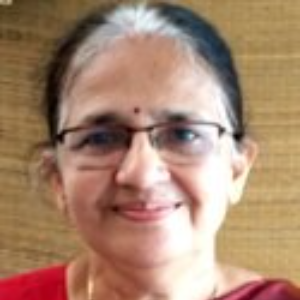Title : Be aware while treating postspinal headache
Abstract:
Central neural block (CNB) is administered frequently for caesarean section. Post-spinal headache (PSH) is the most frequent and discomforting late complication of spinal anaesthesia.PSH is an important cause of iatrogenic maternal co-morbidity and maternal dissatisfaction. Expedited discharge of the mother or delayed onset of PSH in some women may not capture all the mothersdeveloping PSH after hospital discharge. The mother having PSH might first report to the obstetrician. A pilot study in our institute, regarding knowledge and practice of treatment of PSH amongst obstetriciansdemonstrated limited knowledge of PSH. Bedrest, fluids, analgesics, caffeine, Sphenopalatine ganglion block, and Epidural blood patch are treatment modalities commonly used for PSH management.
Even though PSH is a self-limiting condition, a subset of patients will suffer from potentially life-threatening neurological consequences. Such a patient needs urgent referral to an anaesthesiologist, neurologist, and special radiological investigations for definitive diagnosis and treatment. Awareness needs to be there amongst obstetricians regarding PSH to avoid medicolegal problems and patients also are to be educated about red flag symptoms once they develop PSH. This article reviews the pathophysiology, clinical picture, and management of PSH with special considerations during the postpartum period.
Keywords: Anaesthetic techniques, epidural; Anaesthetic techniques, spinal; Complications, post-spinal headache; Headache, postpartum period; Treatment, post-spinal headache; Obstetric analgesia, anaesthesia.
Audience Take Away:
- Obstetricians will be able to diagnose post spinal headache and other headaches which might be more serious. They can reassure the mother and initiate treatment and refer the patient to anaesthesiologist. If they come across atypical headaches, they will immediately advice radiological investigations and refer the patient to neurologist. This is of importance when the patient is discharged from hospital and patient reports to obstetrician for headache.
- Most of the obstetricians treat post spinal headache without referring the patient to anaesthesiologist. Delay in treatment may increase morbidity and mortality at times. This lecture would create awareness about pathphysiology, diagnosis, treatment and complications of post spinal headache. Obstetricians will also be aware that all headaches after spinal anaesthesia are not post spinal headaches. This will be useful obstetric Anaesthesiologists and nurses.
- After this lecture the obstreticians will be able to diagnose the postspinal headache and will start proper treatment and refer all such patients to anaesthesiologists. They will know about red flags in patient with post spinal headache and avoid morbidity and mortality during puerperal period.
- Obstetricians will be made aware that every case of post spinal headache must be referred to the anaesthesiologist and be able to advice epidural blood patch or sphenopalatine ganglion block for moderate to severe degree of post spinal headache. They would advice radiological investigations when atypical headache is suspected and timely refer the patient to neurologist. This may be life saving at times.
- The knowledge about post spinal headache is essential to obstetricians, as the mother may develop headache after discharge and report to obstetrician. Obstetrician should be able to diagnose is it a post spinal headache or headache due to some other serious condition like cerebral venous thrombosis or meningitis etc. Timely detection and referral can be life saving to avoid medicolegal issues.




